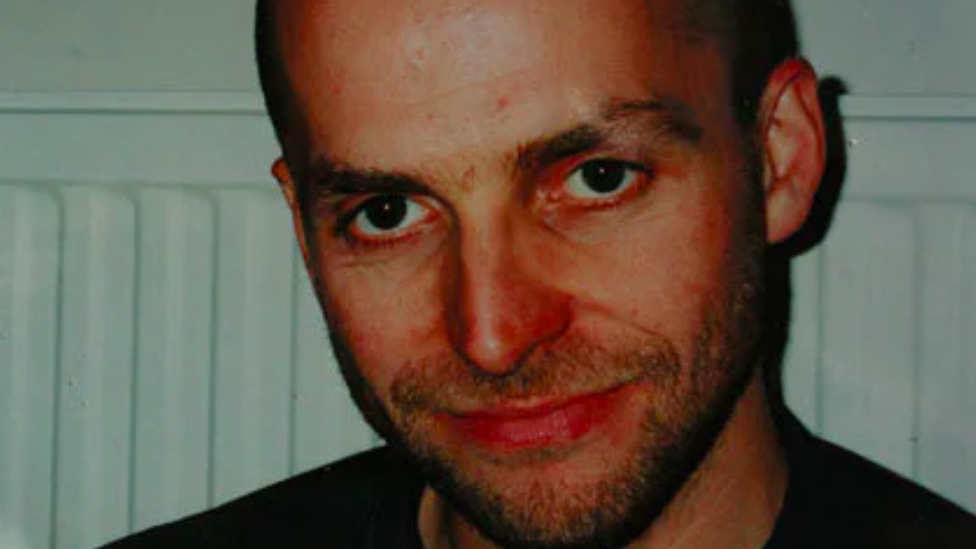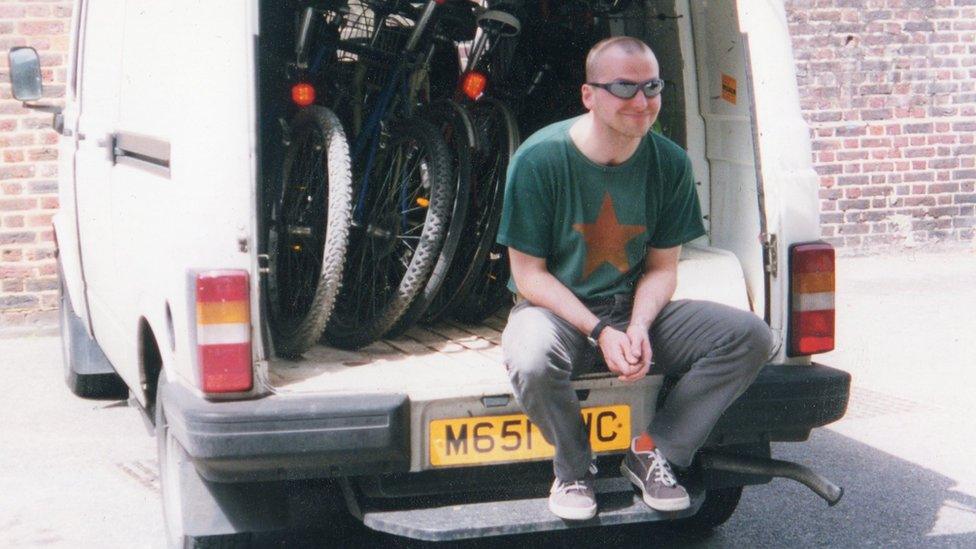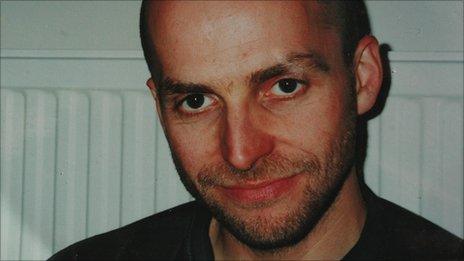Met Police: Detective would not have lost job over undercover relationship
- Published

Det Con Jim Boyling went by the name of Jim Sutton when working undercover for the now-disbanded Special Demonstration Squad
A Metropolitan Police officer who had a sexual relationship with a female activist while undercover would have kept his job if he had not already been sacked in 2018 and was still a serving officer, a tribunal has ruled.
Then-Det Con James Boyling infiltrated the environmental activist group Reclaim the Streets in 1997.
At this time he had a six-month affair with an activist known as Monica.
Gross misconduct was proven but no sanctions could be imposed.
This was due to the fact that sexual relationships between undercover officers and activists were not explicitly banned at the time he was with Monica, when Mr Boyling was working for the since-disbanded Special Demonstrations Squad (SDS).
However, officers were told to make these relationships "fleeting" and "disastrous", the panel heard.
Guidance read out to the tribunal said: "While you may try to avoid any sexual encounter, there may come a time when your lack of interest may become suspicious.
"If you have no other option but to become involved with [an activist], you should have fleeting, disastrous relationships with individuals who are not important to your sources of information."
Returning its decision on Friday, the panel said Mr Boyling had breached standards in respect of integrity and discreditable conduct.
The former detective, who was known as Jim Sutton while undercover, admitted the relationship with Monica but denied his actions had amounted to gross misconduct.
In 2018, Mr Boyling was dismissed for gross misconduct by the Met over a relationship with another woman between 2001 and 2005, also while he was undercover.

Analysis
Sonja Jessup, BBC London home affairs correspondent

Campaigners have questioned why James Boyling faced a second misconduct hearing when other undercover officers who also had sexual relationships have not
This was a highly unusual misconduct case.
Firstly, because James Boyling had already been found guilty of misconduct and sacked from the Met Police five years earlier.
Campaigners, including "Monica", whom he deceived into a relationship, have questioned why he faced a second misconduct hearing when other undercover officers who also had sexual relationships have not.
Secondly, although the panel found James Boyling to have committed gross misconduct, it also criticised the Met over "totally inadequate" guidance for officers and a culture where women appear to have been treated as "collateral damage".
It was a case that focused on one officer, but its findings suggest there are much wider questions for the Met.

The solicitor representing Monica, Elizabeth Forrester, said: "Today we have seen a real shift in the narrative away from that of the police still trying to use the language of bad apples, towards an honest appraisal of the damage done by institutional misogyny.
"We want to see more officers giving evidence, and rather than the police protecting themselves, we want to see more of the truth come out.
"Boyling was not sanctioned because the culture of the SDS made him what he was and was happy with what he did."
The disciplinary panel was told on Monday that a detective inspector who line managed Mr Boyling at the time, named as N10, admitted to sexual relationships with four female activists while he was undercover between 1983 and 1987. He got one of the women pregnant.
Another officer, N11, also had sexual relationships with female activists and resumed his undercover identity without authorisation, the panel was told.
Mr Boyling did not tell bosses he was in the relationship with Monica despite having two meetings a week with them, the hearing was told.
The tribunal forms part of the wider and ongoing Undercover Policing Inquiry.

Follow BBC London on Facebook, external, Twitter , externaland Instagram, external. Send your story ideas to hellobbclondon@bbc.co.uk, external
Related topics
- Published14 December 2018
- Published3 May 2018

- Published20 October 2011
